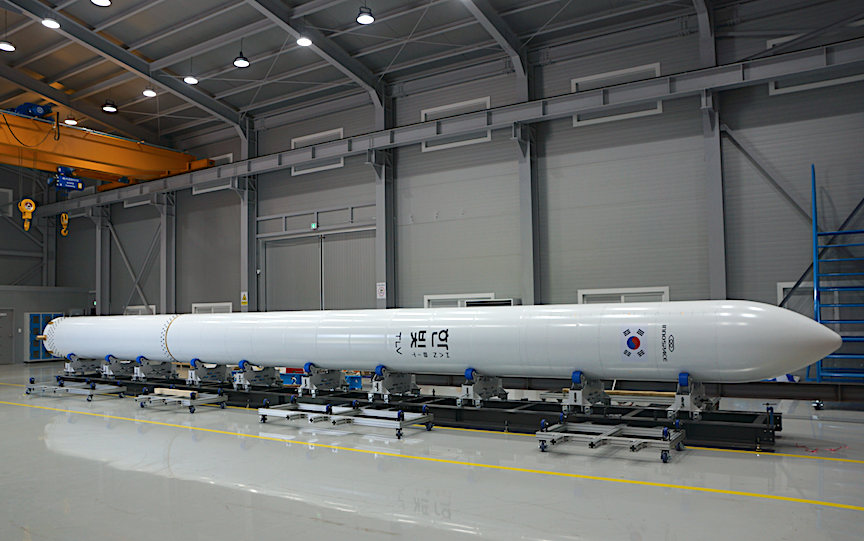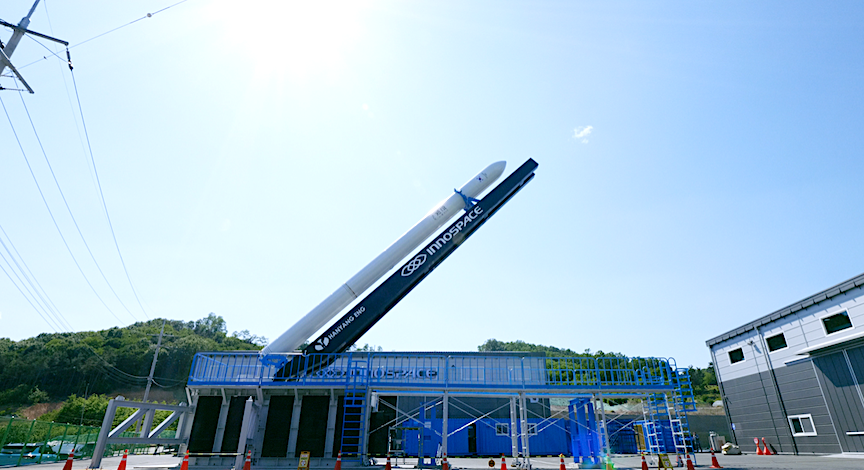
The use of solid fuels and liquid oxygen simplifies the structure and has the advantage of enabling thrust control...
INNOSPACE, a South Korean space startup for small launch vehicles, unveiled the nation’s first civilian test launch vehicle, HANBIT-TLV. The company manufactures small satellite launchers to provide low-latency, low-cost, and reliable launch services and aerospace engineering expertise.
Previously, INNOSPACE installed a new portable Coalesced Launch System (CLS) at its Cheongju plant in South Korea where it performed to verify interface integrity and systems compatibility with its CLS and HANBIT-TLV on May 27.

The HANBIT-TLV’s launch, in December 2022 from the Alcântara Launch Center in Brazil, is to verify the flight performance of the 15-ton thrust single stage hybrid engine developed by INNOSPACE with its own technology. The launch will be followed by a suborbital test flight up to an altitude of 100 km, and will fall into open seas. HANBIT-TLV is a 15-ton thrust single stage hybrid rocket with a height of 16.3m, 1-meter-diameter, and weight of 9.2-ton.
The first civilian small satellite launcher, HANBIT, uses hybrid rocket engine technology that combines the features of liquid and solid rockets. The use of solid fuels and liquid oxygen simplifies the structure and has the advantage of enabling thrust control. In particular, HANBIT is applied with high-performance and non-explosive paraffin based propellants and the patented electric motor-driven oxidizer pump.
“We have approximately six months left before the first test launch scheduled for December this year. There are works to be done before the final launch and we will make all-out preparations to increase the success rate of the test launch for the rest of the time,” said Soo Jong Kim, CEO of INNOSPACE.
He added, “INNOSPACE’s ultimate goal is that the small satellite launcher carries the satellites so that they can access the Sun-Synchronous Orbit (SSO) in low cost. Starting with the test launch this year, we will continue to develop technologies to enter the global satellite launch service market as soon as possible, and keep strengthening strategic cooperation with the space industry and global commercialization capabilities.”
INNOSPACE has signed an agreement on May 3rd with the Brazilian Department of Aerospace Science and Technology (“DCTA”) to launch SISNAV, an inertial navigation system, being carried onboard as a payload of HANBIT-TLV.
